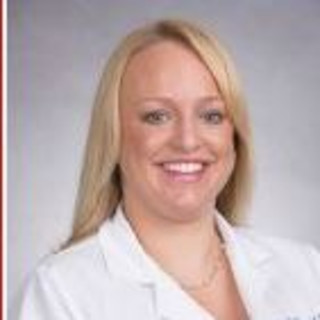I went into primary care to hear the stories of my patients and how their narratives unfurl over time. The fast pace of inpatient medicine and immediacy of answers to difficult medical questions appealed to me, but I found the time-limited interactions with patients in the hospital for just a few short days difficult. I felt like I had just settled into reading a long-awaited book that was snatched away from me after just a few chapters. I needed to know the rest of the story, which led to my gravitation to primary care. When I first started my career, little did I know how difficult it would be for me when patients took a sharp turn down a path to an ending that I did not understand.
Mr. D was a relatively healthy man in his early 80s whom I saw on a yearly basis for a routine checkup. I think he came to these appointments primarily to fulfill a sense of obligation stirred in him when he got the appointment reminder card in the mail. He rarely wanted to discuss his medical problems, and I cannot recall a time that I ever saw him for an unscheduled visit. Instead, at his appointments he liked to chat about current affairs. He often asked me to weigh in on intellectual disputes about evolution or philosophy that he had with his friends over their frequent breakfast meetings. A major topic of concern for him was overpopulation of the planet.
Mr. D had mild emphysema from prior smoking but did not seem particularly bothered by his symptoms. He was able to manage just using an as-needed rescue inhaler. Otherwise, he had no active medical problems. The last time that I saw him he asked me his usual array of philosophical questions. However, in a slight variation to his usual script, he also casually asked me as he was walking out the door if his emphysema would ever get better. I told him that he would not be cured, but that his symptoms could be managed. He left my office with a wave and his usual hearty grin.
A few weeks later I returned to work after a long weekend away. I signed into the EMR, and my eyes were immediately drawn to the alert that Mr. D had died. I could hear my heart pounding in my ears while I read how he had shot himself in the head on a public sidewalk. The day that he died by suicide just happened to be my birthday. He left no note and told no one of his plan or reason for killing himself. He lived alone, had no known surviving family members, and had no next of kin or emergency contacts for me to call to get more information. There really was no one left to ask why he had ended his life. An absurd thought briefly flitted through my head that I could go try to find his breakfast buddies at some unnamed fast-food restaurant, but that seemed an impossible task.
Mr. D’s story had a confusing, heartbreaking conclusion and there was no one else with whom I could discuss the outcome. He was my first patient that died by suicide, and I had no idea how to act or what to do next. Sitting alone in my office I burst into hysterical tears. I thought about Mr. D and his unfortunate death nearly nonstop for days, weeks, months even. In thinking back on discussions that we had had over the years, I ultimately pieced together that he likely believed that his emphysema would worsen to the point that he would become a drain on society. He felt that being a burden to others and losing his independence was the worst fate that he could suffer.
While I make this conjecture, I will never truly know the series of decisions that led this patient to suicide. My guilt has eased some in the years since Mr. D’s death, but I am sure that it will never completely go away. For a long time, I tortured myself with 'if onlys' such as, “If only I had asked him more questions at his last visit” or “If only I asked him what made his life meaningful.” In retrospect though, I am not sure if anything I said or asked him would have changed his planned course. I have come to an uneasy peace with myself and with the ghost of Mr. D and have forgiven us both. I think about him much less than in the past. However, every year on my birthday I pull down his metaphorical book from the dusty bookshelf that exists only in my mind, and I reread the good chapters of his life.
Have you ever had a patient die by suicide? How did you make sense of the experience? Share your thoughts in the comments below.
All names and identifying information have been modified to protect patient privacy.
Kelley Hagerich, MD, MPH is a Primary Care Physician and Obesity Medicine Physician at the VA San Diego Healthcare System and an Associate Clinical Professor of Medicine at the University of California, San Diego School of Medicine.
If you or someone close to you is experiencing thoughts of suicide, please call the National Suicide Prevention Lifeline at 1-800-273-8255 or text HELLO to the Crisis Text Line at 741741.
Illustration by Jennifer Bogartz







